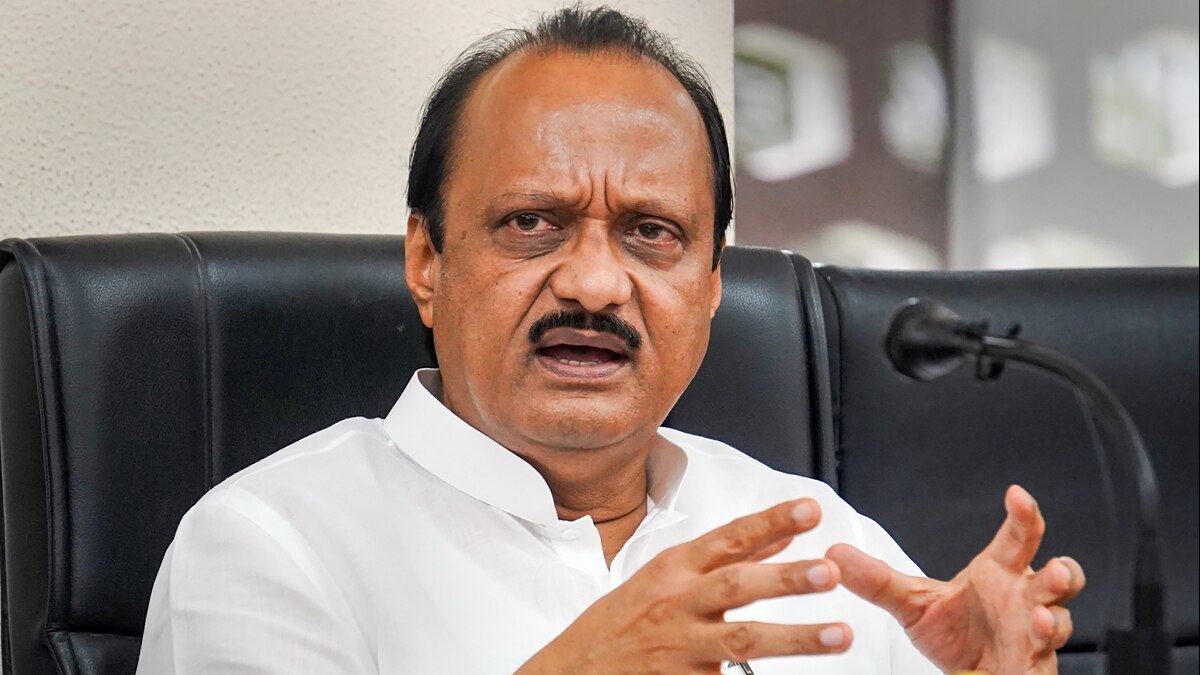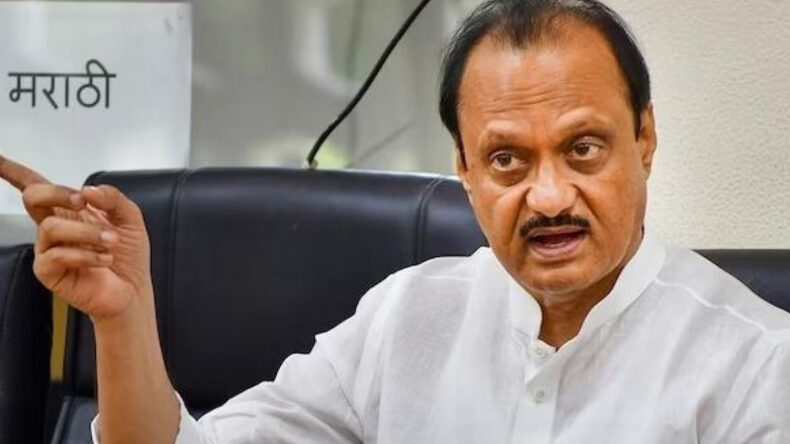In a dramatic turn of events, the Nationalist Congress Party (NCP) finds itself embroiled in a power struggle as Ajit Pawar, the nephew of party chief Sharad Pawar, rebels once again and assumes the position of Maharashtra Deputy Chief Minister. This rebellion has ignited a battle for control within the NCP, with Ajit claiming the support of all 53 MLAs while only a fraction of them were present during his oath-taking ceremony. Meanwhile, NCP leader Sharad Pawar appoints Jitendra Awhad as the new Leader of Opposition in the state Assembly, signaling his determination to retain control over the party.

source- The indian express
The Power Tussle Unfolds
Ajit Pawar’s rebellion mirrors the power struggles seen in other political parties, such as the Shiv Sena, where Uddhav Thackeray and Eknath Shinde vied for control. Now, the Pawar family seeks to assert its dominance over the NCP. As Ajit and his faction claim the support of a majority of NCP legislators, Sharad Pawar opts to take the battle to the people rather than pursue legal channels.
The Battle for Support
Ajit Pawar’s camp asserts that more than two-thirds of NCP legislators have signed a letter of support for him, while Jitendra Awhad, representing Sharad Pawar’s side, dismisses these claims. Awhad insists that Sharad Pawar is the only leader of the NCP and challenges Ajit Pawar to have each MLA individually confirm their support. Awhad also highlights the irony of Ajit Pawar being blamed by Shinde and other MLAs for the toppling of the NCP-Sena-Congress alliance government, only to now witness a reconciliation between the two sides. He suggests that the NCP will capitalize on this issue during elections, believing that the common people can discern the true nature of the situation.
The Path Forward
While a legal battle to claim the party remains a possibility, Sharad Pawar chooses to rely on the support of the people. He expresses his trust in the citizens of the state and the youth, drawing from past experiences in the 1980s when he successfully approached the people directly. However, sources within the party acknowledge that a conflict between the two factions is inevitable. Regardless of the maturity of the leaders, the party workers will not accept any ambiguity, leading to a potential escalation of the power struggle.

source- India today
Implications for the NCP and the MVA Alliance
The internal strife within the NCP has broader implications for the party’s stability and its alliance with the Shiv Sena and the Congress in the Maha Vikas Aghadi (MVA). Ajit Pawar’s faction appears to have severed ties with the MVA, while Chief Minister Eknath Shinde considers the alliance a sinking ship. Ajit clarifies that the NCP will contest the next elections in partnership with the BJP and the Shinde Sena. However, Congress chief Nana Patole downplays the impact of a group within the NCP joining hands with the BJP, expressing confidence in the Congress’s ability to emerge victorious in the upcoming elections.
The power struggle within the NCP, triggered by Ajit Pawar’s rebellion, threatens to divide the party and disrupt the stability of the MVA alliance. As both factions claim to represent the true NCP, the conflict is likely to escalate in the near future. The party’s future depends on how effectively they navigate this internal strife, as it may have significant consequences for their electoral prospects.













